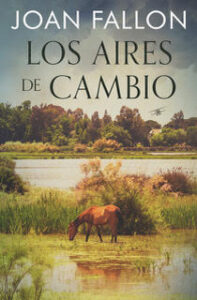You only have to look into his steely grey eyes to see the hardness of his heart, a heart without pity, without compassion, without understanding. All Felipe understands is money. Don Luis’s elder son measures everything in pesetas and weighs its worth in gold. His employees hate and fear him, not surprisingly as he has the power of life and death over them; one word from him and they and their families would starve and he would think no more of his actions than if he had stepped on a cockroach. Their lives mean nothing to him; there are always others queuing for work, eager and willing to take their place. The men arrive each and every morning begging for a few hours labour. If they are lucky they get to work from dawn until sunset. If not they trudge home to explain to their waif-like wives and hungry children that there is no work today and therefore no food.
These are the thoughts that run through Pedro’s mind as he stands shivering in the cold light of a pale dawn. He has been waiting along with the rest of the men who hope to be employed today on the Butler & Rodriguez estate; they are all braceros, the landless labourers who are the most wretched of all Spain. For half the year they are employed and can feed their families; for the rest of the year they have to make do on what they can scavenge, and Felipe does not care. He does not care if their children starve, nor if they are sick and have no money for a doctor. He does not care if they have to eat scraps that they have found in the bins of others, or grub in the ground for roots as though they were animals. He does not care if the water they drink is foul and contaminated, nor if the women have to walk two kilometres to collect it from a well that is also used to water the vines. This is the most economical way for the owners of the vineyard to employ the men so why should they pay them for being idle half the year, he argues. It does not make sense, he says. The families have roofs over their heads. What more do they want? he asks.
As he contemplates his life, Pedro feels more and more depressed. There is no escape. It does not matter what Ramon says. All that fighting-talk will come to nothing, just more hardship and more violence; the children will still be hungry and his beautiful wife will still looks ten years older than she is.
At last the foreman drives up in the lorry. Immediately the air is charged with expectation and hope; the men shuffle forward hoping that today they will be lucky.
‘I only need twenty of you for the pruning,’ Enrique says, jumping down from the lorry and opening the tailgate. ‘You, you and you.’ One by one he points to those he wants and they climb up onto the back of the lorry.
Pedro holds his breath. ‘Me, choose me,’ are the words repeating themselves in his head. ‘Please choose me.’


